- Expert advice/
- Wedding planning 101/
- Legal/
- How to Get a Marriage License in Colorado
- Legal
How to Get a Marriage License in Colorado
Colorado is a gorgeous place to get married, but before you say “I do,” check out Zola’s guide to Colorado marriage laws.
Last updated February 5, 2024
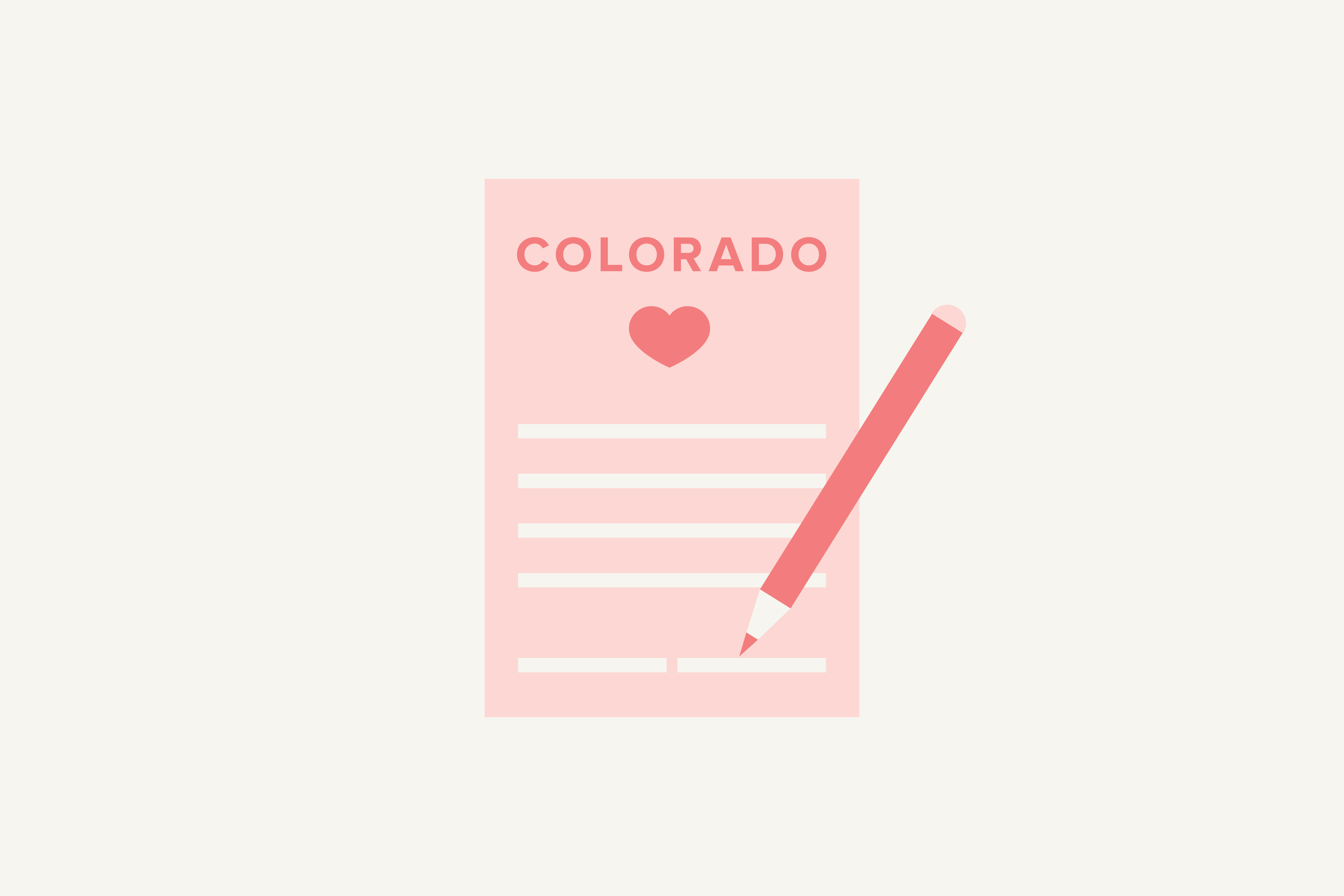
The First Look ✨
- To get a marriage license in Colorado, both partners must be present and show the county clerk valid identification. There’s also a $30 fee to apply for a marriage license.
- Colorado issues marriage licenses the same day that you apply, but you must sign and file it within 35 days of issuance.
- Colorado allows three types of unions: marriage, civil, and common law.
- It’s helpful if you plan for the weather, as well as the altitude in Colorado. You should also research the local food and check out as many venues as possible to get the best price for your wedding.
From the snow-capped peaks of the Rockies to the Laramie River’s lush banks, Colorado’s a gorgeous place to say “I do.”
However, before you can tie the knot in Colorado, you must first get a marriage license.
In this guide, we’ll cover all you need to know about getting a marriage license in Colorado—from the application procedure to Colorado’s marriage laws. In addition, we’ll cover tips and tricks for getting married in Colorado. In no time at all you’ll be having the Colorado wedding of your dreams.
Application Procedure
Colorado’s a state with a fairly easy marriage license application process. If you live out of state, the biggest obstacle will be appearing in person in front of a county clerk (unless you’re marrying by proxy). You should also note the following:
-
Colorado allows for three types of unions—marriage, civil, and common-law. The application process is the same for marriage and civil unions.
-
To apply for a marriage license in person, both parties must file an application at any county clerk’s office. Ideally, both parties should be present, but if one party is absent, the other party can file an absentee application and present a copy of their partner’s ID.
-
Although hours do vary occasionally by county, most county clerk’s offices are open Monday through Friday from 7 a.m. to 4 p.m. Appointments are required.
-
The marriage license application asks for both parties' names, addresses, and birthplaces, as well as the names and addresses of both parties’ parents. The application also asks for the expected date of the ceremony and other pertinent information.
-
Some counties allow you to fill out your application online, but you must still present identification and be together in the same room in Colorado.
Applying Online
Some Colorado counties allow couples to apply for their marriage license online. While this saves time and energy, couples should be aware that the following restrictions apply:
-
Microsoft Teams is required to apply online, as well as video conferencing capabilities.
-
Both parties must be in the same room together in Colorado. Colorado won’t mail completed licenses to addresses outside of the state.
-
While video chatting with the county clerk, you must have identification and payment ready.
Application Requirements
Although the marriage application is straightforward, it’s important to know the following information:
-
In order to apply for the license, both parties must bring photo identification showing their ages. Acceptable identification includes drivers’ licenses, passports, state-issued ID cards, or military ID cards. Some clerks may accept a certified birth certificate, and a few clerks may require your social security card.
-
Neither partner is required to be a Colorado resident (unless you’re applying for a proxy marriage).
-
If your prior marriage ended in divorce or annulment, you must also furnish a dissolution document. Failure to do so may result in a felony bigamy charge.
-
A $30 fee is required to file.
-
As Colorado neither licenses nor registers wedding officiants, officiant registration is not required.
Things to Know About Colorado’s Marriage License
When you’re applying for a marriage license in Colorado, you may still have some lingering questions about the particulars of getting married in the state.
-
Your marriage license will be issued immediately after you successfully file your application, and you can marry that same day. The quick turnaround means that you’ll have more time to search Zola’s stylish stationery options for menu and program ideas.
-
Colorado’s marriage license expires 35 days after issuance. Unused licenses must be returned to the county clerk’s office.
-
The marriage license is good for any county in the state.
-
A blood test is not required in Colorado.
Unique Colorado Marriage Laws
A marriage in Colorado is recognized federally. However, the state does have a few unique marriage laws. Couples wanting to get married in Colorado should note the following:
-
Minimum Age – The minimum age to get married in Colorado without parental and/or judicial consent is 18. If you’re 16 or 17, you must get both parental and judicial consent in order to get married.
-
Common Marriage Laws in Colorado – Colorado is one of the few states that recognizes common-law marriage, an informal arrangement in which a couple lives together and presents themselves as married. A marriage certificate is not required in Colorado for common-law marriages.
-
Proxy Marriage Laws – Proxy marriages are allowed in Colorado under the conditions that both parties are at least 18 and one party appears in person to receive a marriage license. However, unlike a traditional marriage, at least one person must be a resident of Colorado. Also, the absent party must be stationed outside of the state due to military service or government contracting.
-
Family Marriage Laws – Although you may not marry siblings, uncles, nieces, aunts, and/or nephews in Colorado, it is permissible to marry your first cousin.
Frequently Asked Questions About Marriage in Colorado
Still have questions about Colorado’s marriage laws? Take a look at the following frequently asked questions.
-
When should I start applying for my marriage license in Colorado? Colorado doesn’t have a waiting period between applying for the license and receiving it. However, most counties recommend you come in one to two weeks before your wedding just to make sure that you have all of your documents.
-
What might invalidate a marriage license application in Colorado? A number of factors might invalidate a marriage license application in Colorado. These include one or more partners being underage, one or more partners not having a social security number, and the party not paying the application fee.
-
Who can solemnize (that is, perform a wedding ceremony) a marriage in Colorado? Colorado allows clergy members, judges and retired judges, magistrates, public officials, and ordained friends and family to solemnize a marriage.
-
Do I need a permit to get married at certain venues in Colorado? If you’re planning to get married at one of the beautiful state parks, such as Rifle Falls or Panorama Point, you’ll need to get a permit from the state. You’ll also need to get a permit if you plan to marry at a city park. While you’re waiting for your permit, check out Zola’s prescreened wedding vendors offerings to get real wedding inspiration for your perfect mountain venue.
-
Can I use another state’s marriage license to wed in Colorado? Unfortunately, another state’s marriage license is not acceptable for solemnization in Colorado.
-
Can my dog be a witness at my wedding? Absolutely! Because Colorado doesn’t require witnesses, it’s perfectly fine for your dog to sign your license with their paw.
What to Do After You Get Your Marriage License
After receiving your marriage license, you have 35 days after the issuance of the license to get it signed and 63 days after the marriage to file it.
-
You can mail in the signed marriage license to the county clerk with whom you originally filed the application. You can also appear in person.
-
If mailing your signed license, mail the certificate and license together in the provided return envelope.
-
It’s easy to misplace important documents. Fortunately, Colorado makes it easy to order copies of your marriage license. Simply order a certified copy of your marriage license on any county clerk’s website and it will be sent to you via mail.
What Is the Difference Between a Domestic Partnership and a Marriage?
Although similar in that both types of unions require you to register with the county clerk and recorder’s office, a domestic partnership differs from a marriage in the following ways:
-
Domestic partnerships require one partner to pay a tax penalty to inherit assets.
-
Partners in domestic partnerships can’t use their relationship to claim immigration status.
-
Some states may not recognize a domestic partnership.
-
The partners in a domestic partnership don’t own assets automatically. If you have any questions regarding domestic partnerships, it’s best to contact a Colorado family law attorney.
Everything You Need to Know About Domestic Partnerships in Colorado
A type of civil union, a domestic partnership is an arrangement between two people affirming their commitment towards one another. Like a marriage, a domestic partnership requires you to register with the county clerk and recorder’s office. But, unlike a marriage, you don’t have to solemnize your union.
In Colorado, any person may enter into a domestic partnership as long as they’re unmarried, unrelated, and at least 18 years of age. To do so, both parties must be present at their county’s clerk and recorder’s office, file a domestic partnership application, and pay the $25 fee. It’s important that when filing for a domestic partnership, both parties must present a document showing a shared address.
Domestic partnerships are beneficial for couples who wish to keep their finances and assets separate. It’s also much easier to get the union dissolved than a traditional marriage. However, traditional marriage offers more financial security in the form of jointly owned assets.
Everything You Need to Know About Common-Law Marriage in Colorado
Colorado is one of a handful of states that recognizes common-law marriage. Like a domestic partnership, a common-law marriage is a less formal union than a traditional marriage. However, unlike a domestic partnership, you don’t have to register your union with the county clerk. To enter into a common-law marriage, you and your partner must demonstrate an “intent” to be married. Ways of demonstrating intent include:
-
Being legally able to join together. Although common-law marriages don’t require couples to go through the legal process of marriage, you still cannot marry your first cousin nor currently be married to someone else.
-
Acting like a married couple. File joint tax returns, own a home together, and/or have joint bank accounts.
-
Living together for any amount of time. Contrary to popular belief, there isn’t a time requirement for common-law marriages.
Common-law marriage offers the same benefits as a traditional union in Colorado. However, you should be aware that some states do not recognize common-law marriages. If you’re planning to leave Colorado, it may be beneficial to get a traditional marriage license.
Everything You Need to Know About Self-Solemnization in Colorado
Want to skip the hassle of having to invite your fourth cousin twice-removed to your wedding? Luckily, Colorado is one of the few states that allow self-solemnization, making it the perfect place to elope. If you choose to self-solemnize, you still need to get a marriage license. And, although you can self-unite the same day you receive your license, most people recommend getting your license at least a week before you elope.
After you self-solemnize, simply sign and file your license with the county clerk.
Self-solemnizing might not be for everyone, but for couples seeking a private ceremony, eloping in Colorado offers many advantages.
Tips and Tricks for Getting Married in Colorado
Once you’ve made plans to get your Colorado marriage license, it’s time for the fun part—the actual wedding planning! Below you’ll find some tips and tricks guaranteed to make your Colorado wedding one for the ages.
Tip #1: Plan for the Weather
Averaging 300 sunny days a year, Colorado is the ideal place for an outdoor wedding. However, Colorado is also known for its winter weather—some resorts receive 300+ inches of snow annually. Unless you want a snow-filled wedding, it may be wise to plan your wedding during the spring and summer months.
-
Springs in Colorado feature mild days and brisk nights. Depending on the location, temperatures average from 25 to 62 degrees Fahrenheit.
-
Summers are very pleasant in Colorado, as the season features warm, low-humidity days and cool nights. In July, the hottest month, temperatures average from 78 to 94 degrees Fahrenheit during the day and between 45 to 60 degrees at night.
-
If you enjoy beautiful foliage, fall is a beautiful time to get married in Colorado. Temperatures average from 23 to 78 degrees Fahrenheit, but you should be aware that many parts of the state receive their first snowfall in September.
-
If you love skiing and a snowy atmosphere, consider having your wedding during the winter. Although the average snowfall and temperature vary greatly by location, temperatures generally range between 14 to 49 degrees Fahrenheit.
Tip #2: Find the Perfect Venue
From the chiseled peaks of Vail to the deep canyons of Royal Gorge Park, Colorado has many gorgeous wedding venues to choose from. Do you want a relaxed ceremony at a ski resort or is a traditional wedding at a house of worship more your speed? Whichever venue you choose, it’s important to know the accommodations that your venue provides, as well as the cost. Below is a list of some of the state’s most popular venues.
- The Little Nell, Aspen
- The Barn at Evergreen Memorial Park, Evergreen
- Viceroy Snowmass, Snowmass Village
- St. Julien Hotel and Spa, Boulder
- Moss Denver, Denver
- Hotel Jerome, Aspen
- The Observatory at Alta Lakes, Telluride
For further guidance, be sure to check out Zola’s wedding vendor and venue finder where venues can be sorted based on location and style—from “relaxed and casual” to “fun and festive.” With Zola’s help, you’ll be able to find the perfect resort to don your ski jacket before your wedding dress.
Tip #3: Eat Like the Locals
As everyone knows, one of the best parts about a wedding is the food. This is especially true in Colorado, a state known for its wild game and farm-to-table produce. What better way to celebrate your big day than by tasting all that Colorado has to offer?
Delight your inner epicurean by treating your guests to wild game such as bison and elk, and be sure to offer plenty of local beers and wine to pair with your Colorado lamb and locally-sourced vegetables. And don’t forget about food trucks—they’ll often bring their scrumptious flavors to any venue.
Tip #4: Prepare for the Altitude
Colorado is known for its elevation. At 5,280 feet, Denver is the second-highest city in North America, and many resorts are 8,000+ feet above sea level. If you don’t live in Colorado, or you’re planning a wedding at a high-elevation venue, it’s wise to acclimate yourself and your guests to the altitude.
Some steps you can take to prevent altitude sickness from ruining your big day include:
-
Driving into Colorado from your home state so that you’ll gradually acclimate to the elevation change.
-
Drinking plenty of water before you arrive in Colorado and throughout your stay.
-
Planning a day or two of hiking before the wedding so that your body is used to the elevation change. This can also be a fun group activity for your wedding party.
-
Going easy on the alcohol. Your body processes alcohol differently at higher elevations and the higher you are the harder the alcohol will hit you.
-
Bringing portable oxygen. This may be especially helpful if you have older guests attending your wedding.
Tip #5: Know Your Budget
While there are numerous advantages to getting married in Colorado, weddings in Colorado tend to be expensive. The average wedding in Colorado costs $30,000. As a result, knowing your budget is important.
Factors to consider when budgeting for your Colorado wedding include:
-
Timing and Location: May through October is considered “wedding season” in Colorado. Prices will generally be higher for all venues during this busy season. Also, be prepared to pay more for venues in downtown Denver or at the more well-known ski resorts. If you want to save money, consider having your wedding on a weekday.
-
Venues: On average, couples can expect to pay $13,321 for their venue. If you want to save money, look for off-season and all-inclusive packages.
-
Event Planner, Food, and Photographers: The average event planner in Colorado costs $1,794. You should also expect to budget $65 per guest for food, though this could vary depending on the catering. And, as of 2016, couples marrying in Colorado paid $2,626 for photographers.
-
Flowers and Decor: On average, couples can expect to pay $2,309 for flowers and decor.
-
Music: Although music costs vary depending on whether you get a DJ or band, couples can expect to pay $1,030.
While a Colorado wedding may not be the cheapest option, it’s possible to have an exciting and affordable Colorado wedding if you do your research. Thankfully, Zola’s got you covered. Be sure to check out Zola’s expert budgeting advice to find ways to save money while still having the wedding of your dreams.
Planning Your Perfect Colorado Wedding at Zola
Colorado is more than a state full of great food and gorgeous views—it’s also the perfect place to celebrate your big day.
But, before you walk down the aisle, you must first apply for your Colorado marriage license. By following the above steps, you’ll have your marriage license in no time at all. And once you have your license, let Zola take care of the rest.
Planning a wedding can be stressful. But with Zola’s help, you’ll have more time to spend with your partner—and a ceremony as beautiful as the Rockies.
From creating your wedding website to helping you find the perfect reception decor, Zola’s there for you every step of the way.
Up next for you
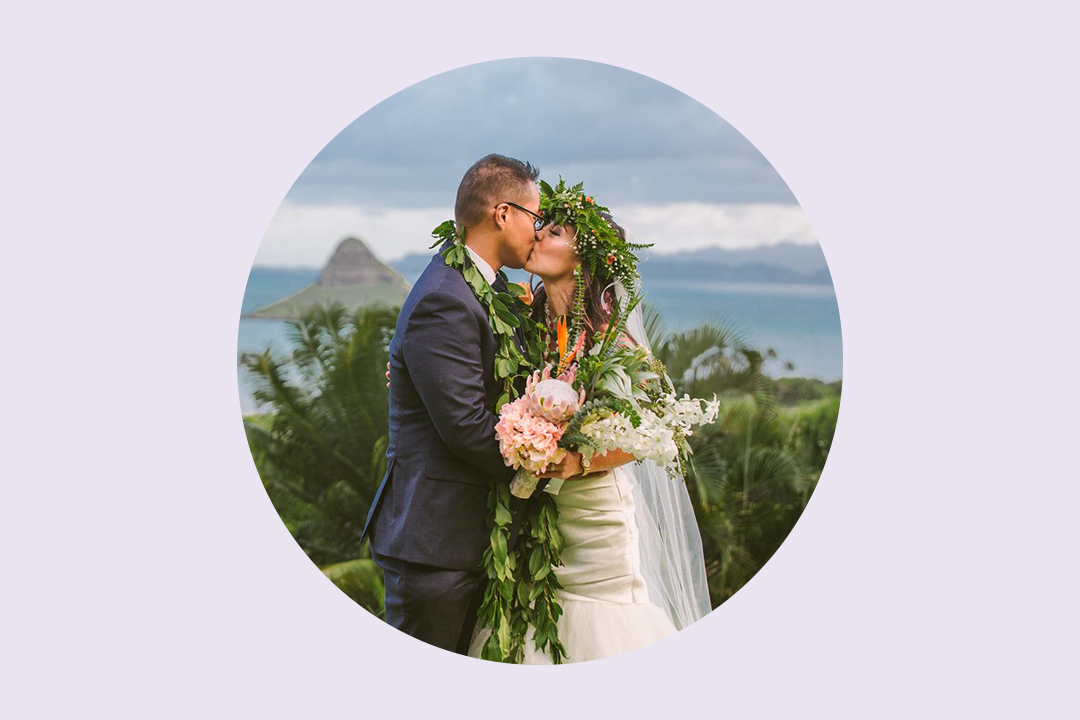
The Ultimate Destination Wedding Checklist for Couples
How-To
This destination wedding checklist is the #1 resource you’ll need to plan your exotic celebration. Discover how to choose a destination wedding location, what to look for in a wedding venue, how to work with local vendors, and more.

15 Beautiful Mountain Honeymoon Destinations
Inspiration
Wanting to head the mountains? Here are some mountain honeymoon destinations to help you find the best trail to blaze.
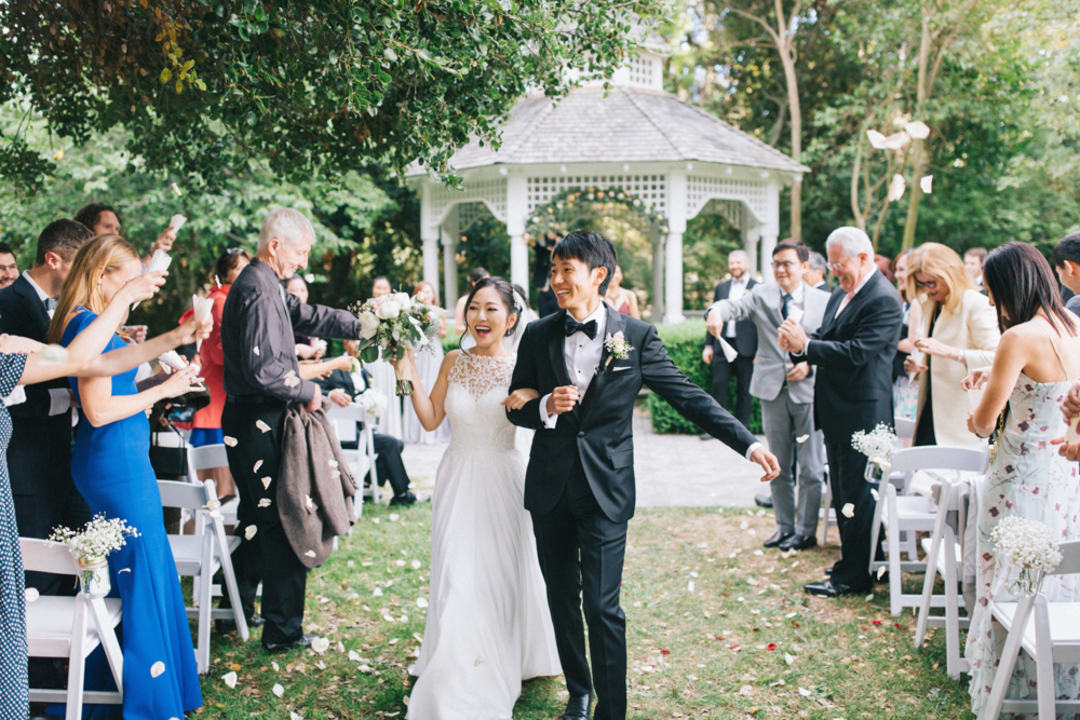
Most Popular Types of Wedding Venues
Venues
Finding the perfect wedding venue can be a challenge. We outlined a few popular types of wedding venues to help you find one that's right for you.
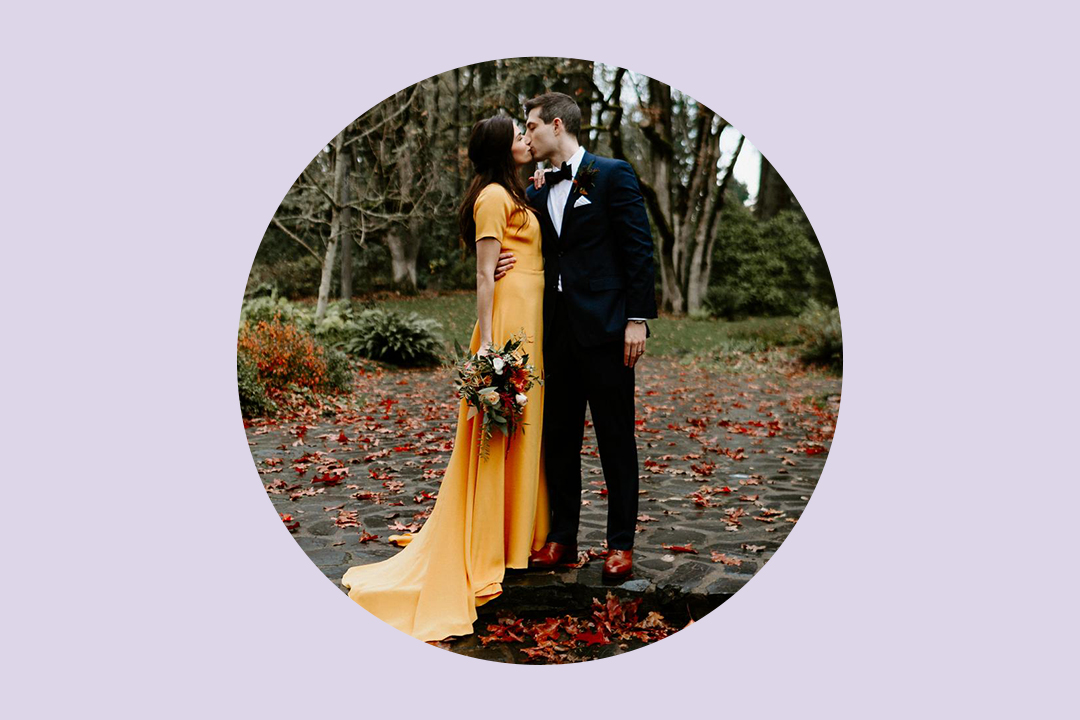
25 Outdoor Wedding Ideas for Fall We Can’t Get Enough Of
Wedding Style
Get creative with these fall wedding ideas for the outdoor celebration of your dreams! See our favorite 25 wedding ideas inspired by autumn here.
Featured

How to Plan a Memorable RV Honeymoon
How To
A road trip honeymoon can be romantic and memorable. Our complete guide to planning a memorable RV honeymoon will help you plan.
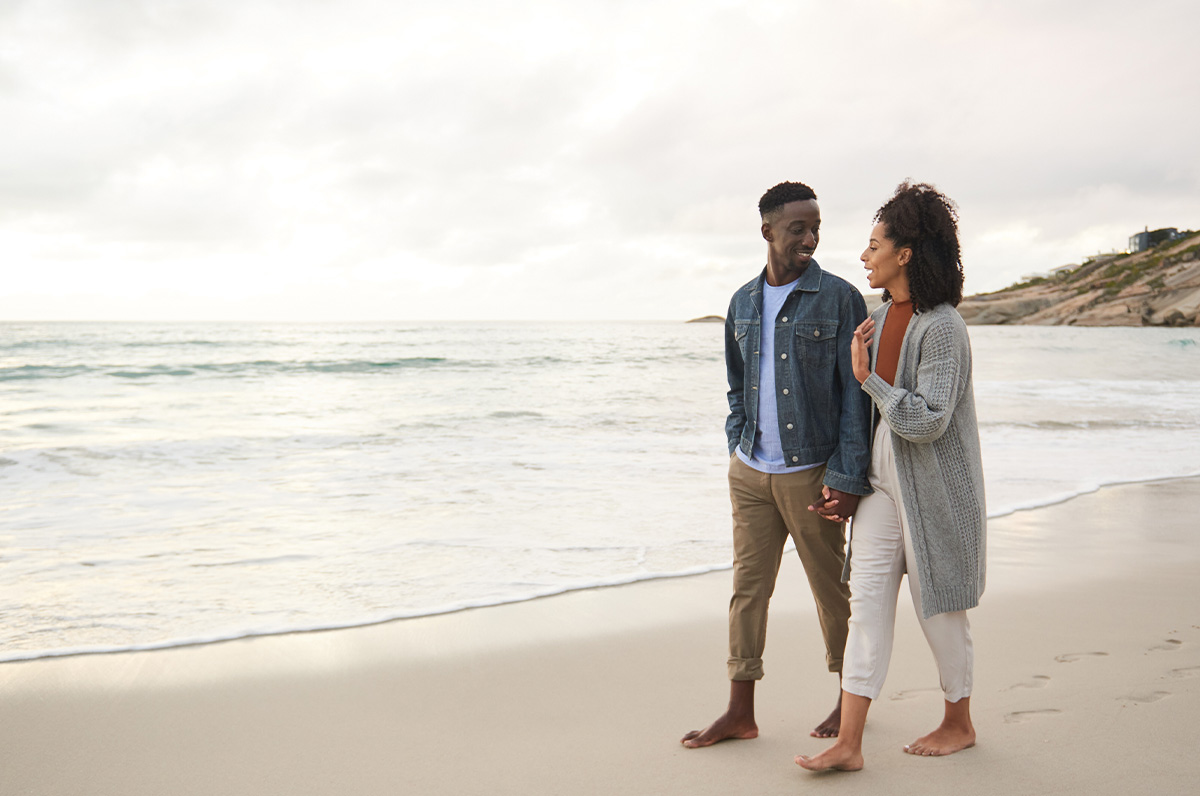
34 Best Honeymoon Destinations for 2026
List
Plan your ideal honeymoon with our curated destinations list. From breathtaking beaches to charming cities, discover the perfect romantic escape.

Best Bachelor Party Destinations
List
Looking for the best bachelor party destinations? Zola experts are here to help! Here is a list of great bachelor party destinations to help you kick-start your celebration planning.
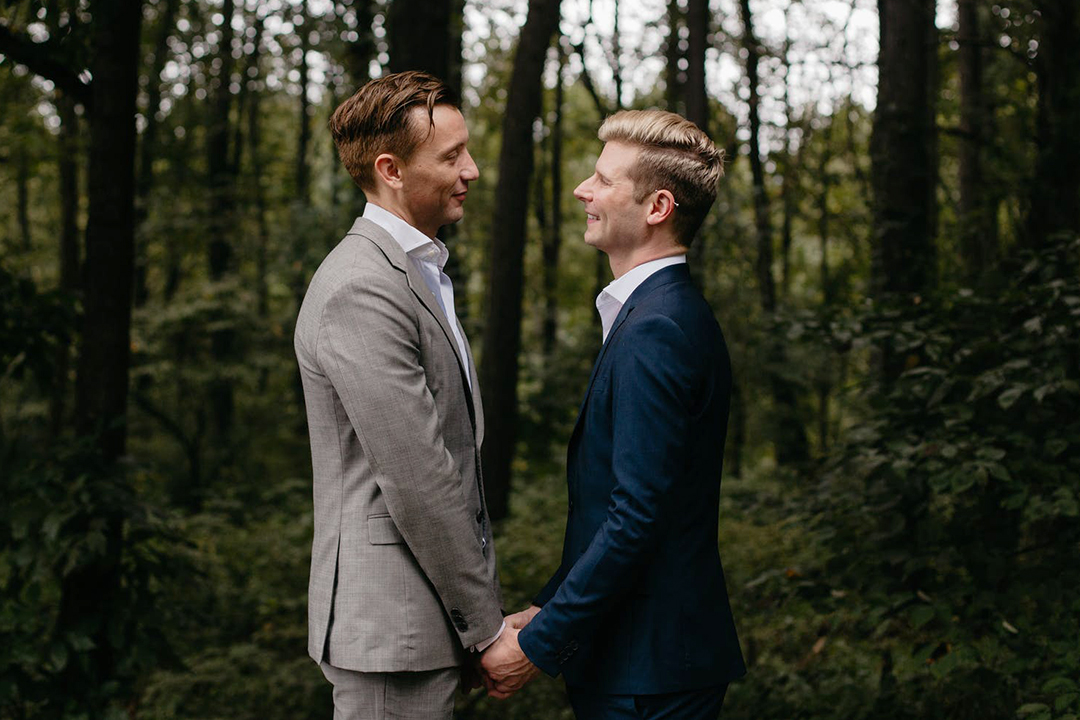
What Season Should You Get Married In?
Advice
Stuck between your love for spring or the magic of winter? There are a whole host of benefits to having a wedding in each season. Here are our tips to help you make the right choice.
- Expert advice/
- Wedding planning 101/
- Legal/
- How to Get a Marriage License in Colorado
Find even more wedding ideas, inspo, tips, and tricks
We’ve got wedding planning advice on everything from save the dates to wedding cakes.
